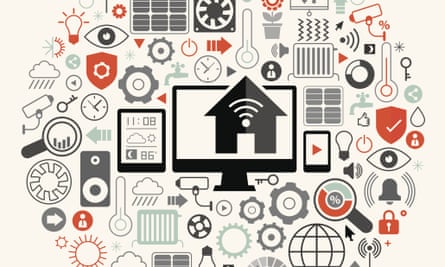Britain could be brilliant at digital, but we’ve been too slow, too incremental – in skills, in infrastructure, in public services. We need to be bolder. We need a new national institution to lead an ambitious charge – to make us the most digital nation on the planet. And I don’t say this because I’m a fan of institutions. But today, we’re letting big commercial technology platforms shape much of our digital lives, dominating the debate about everything from online privacy to how we build smart cities.
Imagine a new kind of digital organisation, diverse and independent but with a strong mandate from government. It would fight for civic, public projects to balance the power of the commercial internet. It could be the catalyst we need to shape the world we want to live in and Britain’s role in that world. It would help us address some of the biggest issues we face, but it would also engage with people in a new, radical way. In fact, I probably wouldn’t call it an institution at all. This would be no normal public body.
If we want to balance the world of dotcom let’s create doteveryone. I would prioritise three areas that I think best demonstrate the opportunities we should be grabbing with both hands: education, women and ethics.
First, doteveryone would help educate people from all walks of life about the internet. The internet is the organising principle of our age, touching all our lives, every day. As the late activist Aaron Swartz put it, “It’s not OK not to understand the internet any more”. We need to make sure that those in power understand how the internet can help us redefine public services, improve the lives of the most vulnerable and bolster our economy.
Leaders and legislators cannot lay claim to grasping the power and potential of the internet just because they’re on Twitter. What we need is politicians and leaders who can escape the old assumptions. I’ve seen that real change is possible, for instance, in the creation of the Government Digital Service in the Cabinet Office in 2010, which has become a recognised world leader in creating digital public services. But we need to move faster. There is a crisis in skills and the understanding of the digital world’s power and potential, but it is not limited to the corridors of Whitehall or the boardrooms of the City. It’s also the case in some of our most disadvantaged communities. We must ensure that the 10 million adults who can’t enjoy the benefits of being online because they lack basic digital skills no longer miss out.

Second, doteveryone must put women at the heart of the technology sector. At the moment, there are fewer women in the digital sector than there are in parliament. Something that is for everyone should be built by everyone. I believe social media platforms would have done more to stop abuse if they had more women in senior positions, And how about the Apple health kit that went to market without anything to do with periods? Building an awesome cohort of female coders, designers and creators would help make us the most digitally successful country in the world and give us an edge.
Why not launch a national challenge to source the best ideas? Why not offer every unemployed woman free education and training? There are exciting projects happening in the UK such as Techmums, Stemettes and Codebar, but there need to be more of them, with bigger impact, so we foster the maximum breadth and depth of digital talent. Surely there must be a couple of new Ada Lovelaces lurking in this land?
Finally, we should aim for a more ambitious global role in unpicking the complex moral and ethical issues that the internet presents. In this year of the 800th anniversary of the Magna Carta why don’t we establish frameworks to help navigate the online world? For instance, what are the implications of an internet embedded in your home appliances? Do children need online rights? What is an acceptable use of drones? Our rule of law is respected the world over; doteveryone should help make us world-leading in answering these questions. Practically and usefully.
Doteveryone won’t, and shouldn’t, feel familiar. No grey suits, no dusty buildings. It’ll be a diverse team with many skills, bursting with women and demonstrating to the world what the future of technology looks like. It will be a place where both the private and public sector would want to send employees for a year because of the invaluable experience they will get.
Doteveryone will be an independent organisation. It will have a strong mandate from government, but also from the public – we will be setting its agenda, informing it and taking part in it. It might produce written reports but it would also prototype services. It should show what is possible when you put the internet at the heart of design.
Doteveryone should aim to do 50 significant projects in the next 10 years. After that, we should be brutal in assessing if we need it. It doesn’t need to last forever; it needs to make itself redundant. We should be making sure that the original promises of the internet – openness, transparency, freedom and universality – are a national asset, as integral to our soft power as Adele, JK Rowling, Shakespeare, or even Downton Abbey.
I have started a petition calling for the next prime minister to start building this idea. Please sign it. Britain invented the BBC and the NHS. Let’s not have a poverty of ambition in this new century: we can, and should, be inventing the definitive public institution for our digital age. Let’s encourage the winner of the next election to focus on making Britain the most digitally powered up country on the planet.
This article was amended on 31 March 2015 to remove a superfluous “year” in a reference to the 800th anniversary of Magna Carta.
